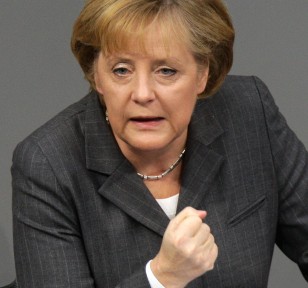In the final quarter of last year, the German economy contracted by 0.2 per cent, its first dip since 2009 reports The BBC.
Meanwhile, the French economy recorded zero growth in the first quarter, after growth of 0.1 per cent at the end of 2011.
Figures released later on Tuesday are expected to show that the eurozone as a whole has returned to recession.
Compared with the same a quarter a year earlier, the German economy grew by 1.7 per cent.
The German statistics agency Destatis said growth in the first quarter was due to a rise in exports and higher domestic consumption.
The return to growth means Germany has avoided a so-called double-dip recession.
In contrast, the French growth figures failed to outperform analysts’ expectations, and the growth figure for the final quarter of last year was revised down to 0.1 per cent from 0.2 per cent.
“There was no good surprise,” said Philippe Waechter at Natixis Asset Management. “There was weak consumption [and] no investment.”
The French GDP figures come on the day of the inauguration of the new French President Francois Hollande, who has vowed to boost economic growth.
In the run up to the presidential election, in which he ousted Nicolas Sarkozy, he campaigned hard for measures focusing on stimulating the economy alongside the austerity measures that have been adopted across the eurozone.
He will visit German Chancellor Angela Merkel later on Tuesday to make the case for growth.
Mr Hollande believes that growth rather than austerity is the best way for governments to reduce their debts, a view that is being discussed more widely as the eurozone economy continues to struggle and increasing numbers of Europeans voice their anger at austerity.
The eurozone economy contracted by 0.3 per cent in the final quarter of last year, and many analysts believe growth figures published later this morning will show further contraction in the first quarter of this year. If they are correct, the eurozone will be back in recession.


